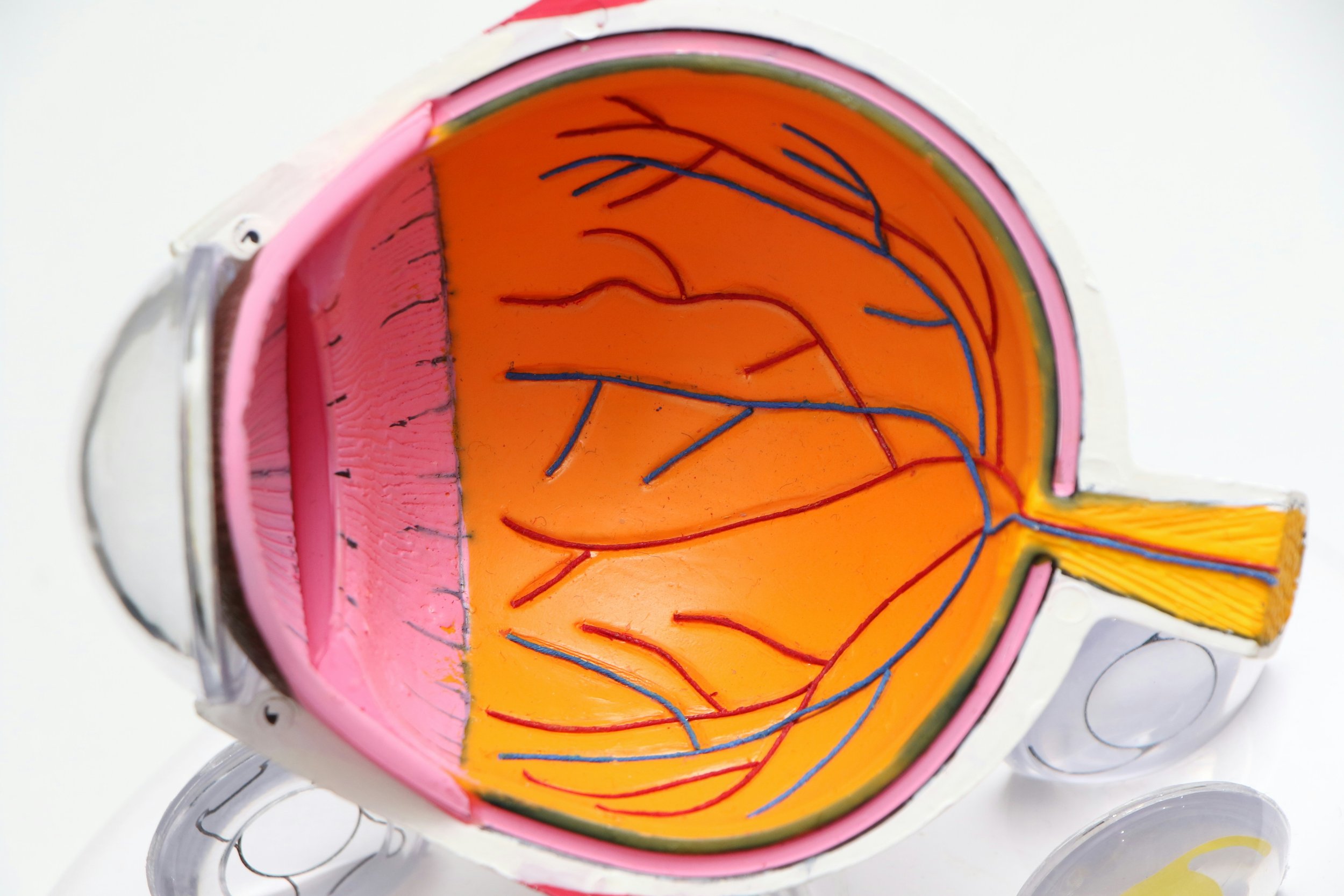Macular Degeneration: Protecting Your Central Vision with the Right Nutrients
Macular degeneration, also known as age-related macular degeneration (AMD), is a leading cause of vision loss, particularly in adults over the age of 50. This progressive eye disease affects the macula, the central part of the retina responsible for sharp, detailed vision. Over time, AMD can make everyday tasks like reading, driving, and recognizing faces more difficult. While macular degeneration does not cause total blindness, it can significantly impact a person’s quality of life.
Types of Macular Degeneration
Dry Macular Degeneration (Non-Exudative AMD)
This is the most common form, accounting for about 80-90% of AMD cases. It occurs when the macula thins with age and accumulates drusen, small yellow deposits that can lead to gradual vision loss. Dry AMD develops slowly over many years.
Wet Macular Degeneration (Exudative AMD)
This less common but more severe form occurs when abnormal blood vessels grow beneath the retina, leaking fluid or blood. This leads to rapid and severe central vision loss if untreated. Early intervention is crucial to prevent permanent damage.
Symptoms of Macular Degeneration
Macular degeneration often begins without noticeable symptoms, making regular eye exams essential for early detection. As the disease progresses, individuals may experience:
Blurry or distorted central vision
Straight lines appearing wavy or bent (a key sign of wet AMD)
Difficulty reading, recognizing faces, or seeing fine details
A dark or empty spot in the center of vision
Reduced color intensity
If you notice sudden vision changes, especially distortion or blind spots, seek immediate medical attention to rule out wet AMD.
Risk Factors for Macular Degeneration
Certain factors increase the risk of developing AMD, including:
Age: AMD is most common in people over 50
Family history: A genetic predisposition increases risk
Smoking: Doubles the risk of AMD progression
Obesity and poor diet: High-fat diets and lack of leafy greens can contribute to eye damage
High blood pressure: Can reduce blood flow to the retina
Excessive sun exposure: UV light may contribute to macular damage
How is Macular Degeneration Diagnosed?
A comprehensive dilated eye exam is necessary to detect AMD. Your eye doctor may use:
Amsler Grid Test: A simple tool to check for distortion in vision
Optical Coherence Tomography (OCT): A scan to detect changes in the macula
Fluorescein Angiography: A dye test to identify leaking blood vessels in wet AMD
Managing and Treating Macular Degeneration
While there is no cure for AMD, early detection and treatment can slow progression and preserve vision.
For Dry AMD:
Lifestyle and diet changes are the best ways to slow progression.
The AREDS2 supplement formula (containing vitamins C and E, zinc, copper, lutein, and zeaxanthin) can help reduce the risk of vision loss.
Eating a diet rich in leafy greens, fish (high in omega-3s), and antioxidants supports retinal health.
Managing blood pressure and quitting smoking can slow disease progression.
Vision Essence is a powerful supplement designed to support macular health with essential nutrients like lutein, zeaxanthin, and omega-3 fatty acids, which help protect the retina from oxidative stress and inflammation.
For Wet AMD:
Anti-VEGF injections (such as Lucentis, Eylea, or Avastin) block the growth of abnormal blood vessels and reduce leakage, preserving vision.
Photodynamic therapy (PDT) combines a special light-activated drug with laser treatment to target abnormal blood vessels.
Laser therapy may be used in some cases to seal leaking blood vessels.
How Vision Essence Can Help
Vision Essence is a specially formulated supplement that supports macular health by delivering key nutrients essential for maintaining strong, clear vision. Ingredients like lutein and zeaxanthin help filter harmful blue light and reduce oxidative damage, while omega-3 fatty acids support retinal function and circulation. Taking Vision Essence as part of a healthy lifestyle can help protect your eyesight and slow the progression of macular degeneration.
Living with Macular Degeneration
While AMD can make daily tasks more challenging, low vision aids such as magnifiers, reading devices, and screen-enhancing software can help individuals maintain independence.
Regular eye exams, a healthy lifestyle, and proper supplementation with Vision Essence can significantly slow AMD progression. If you or a loved one is at risk for macular degeneration, schedule a comprehensive eye exam to monitor vision health.

